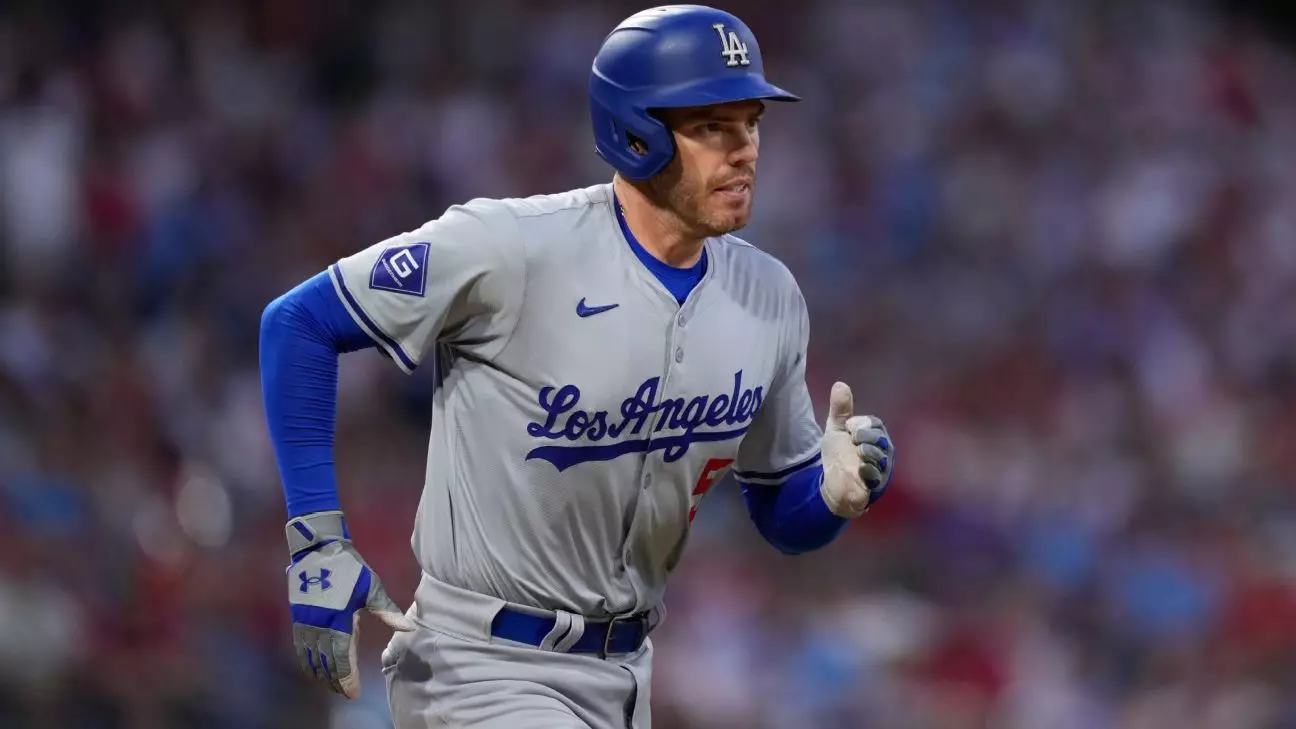The Los Angeles Dodgers face a pivotal challenge in the National League Championship Series (NLCS) with the announcement that key player Freddie Freeman will not be in the starting lineup for Game 4. This decision is a strategic response to Freeman’s ongoing ankle injury, which has lingered since a severe sprain on September 26 against the San Diego Padres. Despite being a leading force and a former MVP, Freeman’s presence on the field has been hampered by physical limitations that have forced the team to reassess their approach in postseason play.
Freeman’s struggle is not only a blow to the Dodgers’ offensive lineup but also highlights the demanding nature of playoff baseball. Through the eight games played in this postseason, Freeman has managed only seven singles from 27 at-bats, a stark deviation from his typical power-hitting prowess. This situation exemplifies how physical ailments can drastically alter a player’s performance and, ultimately, a team’s fortune in high-stakes matchups.
In light of Freeman’s condition and the strategic matchup against the New York Mets’ left-hander, Jose Quintana, the coaching staff has opted for a predominantly right-handed batting order. Teoscar Hernandez is set to fill the formidable No. 3 position usually held by Freeman, while Kiké Hernández will make a notable transition from center field to third base, accommodating Max Muncy’s shift to first base. These adjustments underscore the depth of the Dodgers’ roster and their ability to adapt under pressure, yet they also reflect the void left by Freeman’s absence.
The Dodgers currently lead the series 2-1, buoyed by a dominant 8-0 victory in Game 3, but there remains uncertainty moving forward without one of their top contributors. Freeman’s experience and stature in the game often instill confidence in his teammates; his absence might not only impact gameplay but also the morale of the squad as they navigate the intense atmosphere of the postseason.
Despite the hardship of injury, Freeman’s presence in the clubhouse transcends the stats and numbers. Los Angeles catcher Will Smith articulated the dual role Freeman plays, both as a player and as a source of inspiration for the team. “He’s in a lot of pain out there,” Smith remarked, noting the visible struggle Freeman endures while competing. Yet, this very dedication serves as a motivational force that galvanizes the rest of the squad.
Freeman’s eagerness to return to the lineup, despite the physical toll, showcases the heart and intensity of a professional athlete committed to his team’s goals. As he undergoes intensive daily treatment and contemplates his return, the Dodgers navigate this season’s challenges with the knowledge that true teamwork is essential during difficult times. The resilience displayed by both Freeman and his teammates is a testament to their collective spirit, even when faced with adversity.
The situation surrounding Freddie Freeman is a microcosm of the unpredictability and complexity of postseason baseball. As the Dodgers strategize without one of their stars, the challenge becomes not only about chemistry on the field but also about finding the strength to face the uncertainties that lie ahead.

